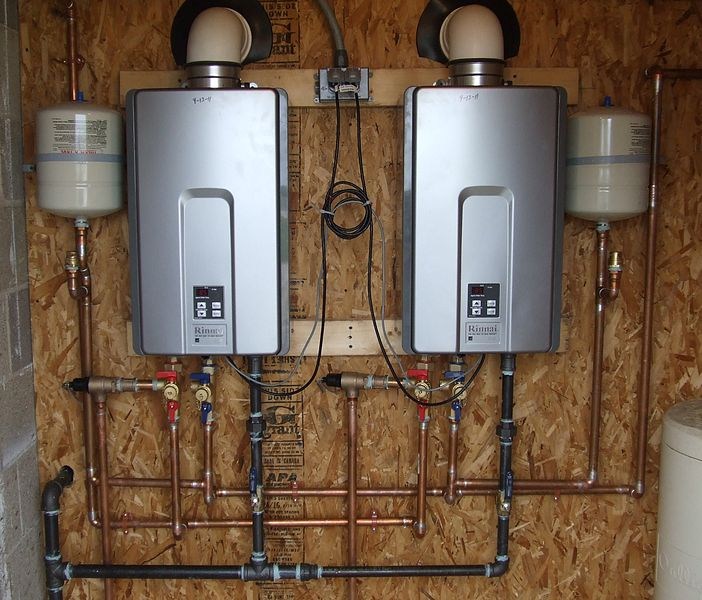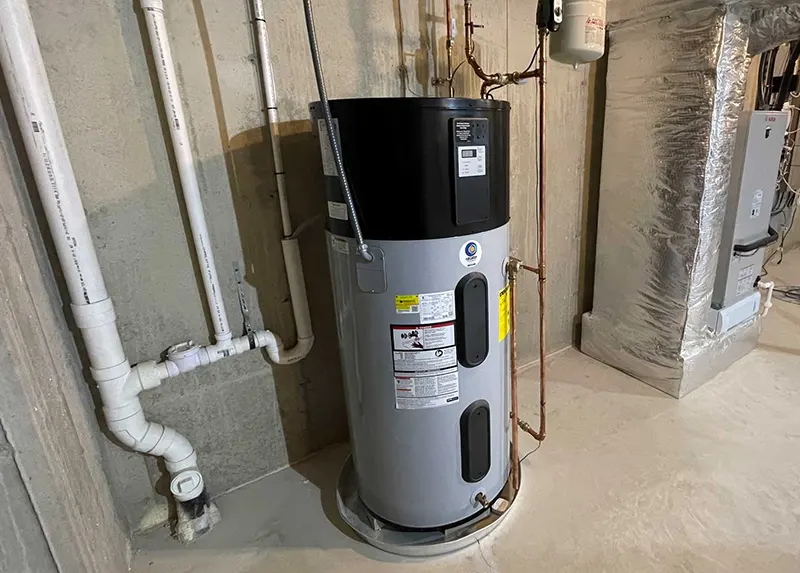Expert Water Heater Installation Services for Consistent Home Heating
Complete Guide to Water HeaterInstallation and Substitute
Recognizing the complexities of water heater installment and substitute is essential for property owners looking for to ensure efficiency and dependability in their hot water supply. From selecting the appropriate kind and size to carrying out a smooth installment procedure, a number of aspects have to be taken into consideration to prevent usual mistakes.
Kinds Of Hot Water Heater
When thinking about hot water heater installation and substitute, it is necessary to recognize the different kinds of hot water heater offered out there. The most usual types include container hot water heater, tankless water heating units, heat pump water heating systems, and solar water heaters.
Container water heaters are standard systems that save a particular quantity of hot water, making them easily offered when required. In contrast, tankless water heaters offer warm water on demand, eliminating the demand for storage.
Warmth pump water heaters use electricity to transfer warm from the air or ground to warm water, supplying significant energy financial savings but requiring more space and certain installation conditions. Solar water heating systems harness solar power to warmth water, offering an environment-friendly alternative with possible lasting price savings, although they typically need a backup system for gloomy days.
Recognizing these alternatives makes sure notified decisions relating to setup and substitute, dealing with particular needs and choices.
Selecting the Right Size
Choosing the suitable size for a hot water heater is essential to guarantee optimum efficiency and efficiency. A device that is as well little will battle to satisfy household needs, resulting in inconsistent warm water accessibility and increased power consumption. Conversely, a large hot water heater can lead to unnecessary power waste and greater utility costs.
To figure out the right size, think about the house's height warm water usage. This can be computed based upon the number of owners and their common warm water needs. For instance, a household of four may call for a water heater with a capability of 50 to 80 gallons, depending on the use patterns, such as simultaneous showers and laundry.
Furthermore, evaluate the recovery rate, which gauges how swiftly a heating unit can replenish hot water after it has been made use of. For tankless versions, focus on the circulation rate, determined in gallons per min (GPM), to guarantee it satisfies the family's simultaneous demand.

Installation Refine Summary

Following, the old unit must be detached and removed, making sure to follow local codes and laws relating to disposal. Once the old system is out, the new hot water heater can be positioned in more area. This step entails linking the water supply lines, making certain that all fittings are leak-free and safe.
After developing water connections, it's important to link the power supply, whether electrical or gas, following the supplier's instructions thoroughly. As soon as all connections are made, the system needs to be full of water, and the power can be transformed back on. It's crucial to examine for leaks and guarantee the water heating system is operating properly before completing the setup procedure.
Usual Installment Mistakes

An additional frequent error is neglecting to follow regional codes and regulations. Stopping working to follow these standards can not just lead to safety and security risks yet may likewise cause costly fines or the need for pricey reinstallation. Additionally, incorrect airing vent is an important concern. Poor air flow can create harmful gas accumulation, posturing major health and wellness threats.
Stopping working to secure links or utilizing the wrong type of installations can lead to leakages and water damages. By preventing these common installment blunders, home owners can ensure their water heater runs safely and successfully, making the most of efficiency and long life.
Maintenance Tips for Longevity
Correct maintenance of a water heating system is essential for check my site its durability and optimal efficiency. Regular examinations and servicing can protect against pricey repair work and expand the home appliance's life-span. Begin by inspecting the temperature level setting; it needs to commonly be set in between 120 ° F and 140 ° F for optimal power efficiency and safety.
Every six months, flush the container to remove debris buildup, which can hinder heating performance and cause deterioration. To do this, switch off the heating unit, attach a hose to the drain shutoff, and allow the water run until it is clear.
Anode poles need to be examined every year and changed when they are corroded. These rods aid avoid storage tank deterioration by drawing in harsh components in the water.
Furthermore, check the pressure safety valve routinely to ensure it is functioning properly. This shutoff is important for stopping too much stress buildup within the storage tank.
Finally, consider scheduling an expert maintenance check every couple of years for extensive assessments and maintenance. By sticking to these upkeep ideas, house owners can considerably boost the performance, safety and security, and life-span of their hot water heater, ensuring reliable hot water for many years to find.
Conclusion
In conclusion, appropriate installation and upkeep of water heaters are essential for making certain performance and durability. By recognizing these vital aspects, house owners can achieve a trustworthy warm water supply while reducing possible issues associated to water heater operation.
Recognizing the details of water heating unit installment and replacement is important for home owners seeking to make sure effectiveness and reliability in their hot water supply.Storage tank water heating systems are traditional systems that keep a certain volume of warm water, making them readily navigate here offered when required. In contrast, tankless water heating systems supply hot water on demand, getting rid of the requirement for storage space. Selecting a water heater that is either too small or too huge can lead to inadequacies, resulting in inadequate hot water supply or extreme power consumption.
By recognizing these essential elements, house owners can achieve a dependable hot water supply while lessening possible problems associated to water heating system procedure. gas leak repair.